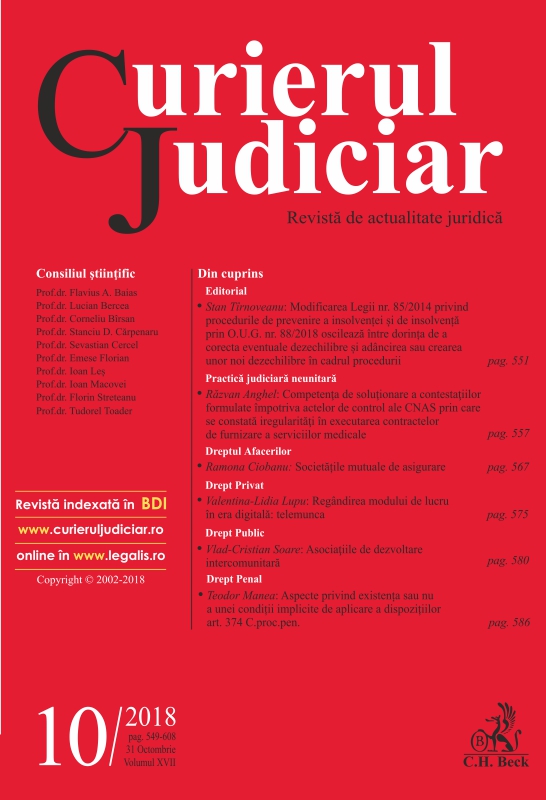Modificarea Legii nr. 85/2014 privind procedurile de prevenire a insolvenței și de insolvență prin O.U.G. nr. 88/2018 oscilează între dorința de a corecta eventuale dezechilibre și adâncirea sau crearea unor noi dezechilibre în cadrul procedurii
The amendment of Law 85/2014 on pre-insolvency and insolvency proceedings by the Government Emergency Ordinance 88/2018 oscillate between the desire to correct any imbalances and the deepening or the causing of new imbalances in the procedure
Author(s): Stan TîrnoveanuSubject(s): Law, Constitution, Jurisprudence, Commercial Law
Published by: C.H. Beck Publishing House - Romania
Keywords: Government Emergency Ordinance 88/2018; terms for settlements of the petitions for opening the bankruptcy; reorganizations by way of conversion; assignment or reducing of the budgetary receivable;
Summary/Abstract: The Government Emergency Ordinance 88/2018 aims at removing insolvency law enforcement practices for a purpose other than that for which it was issued, and namely to delay the settlement of the petitions for opening the bankruptcy and at the same time seeks to protect the business environment from non-payment of debtors’ in insolvency current claims. This is legitimate, but, unfortunately, the same ordinance favors the parallel proceedings by registering in the list of creditors the budgetary receivables as receivables under cancellation condition until the contentious-administrative court settles the action for annulment of the administrative-tax act, as well as by allowing individual enforcement at the same time with the concurrent and equitable procedure of insolvency. It is positive to recognize the possibility of conversion, the assignment of the budgetary receivable, as well as the reorganization of the debtor by reducing the budgetary receivable, but, as a legislative technique, the way of regulating these institutions is not free of criticism.
Journal: Curierul judiciar
- Issue Year: 2018
- Issue No: 10
- Page Range: 551-552
- Page Count: 2
- Language: Romanian

